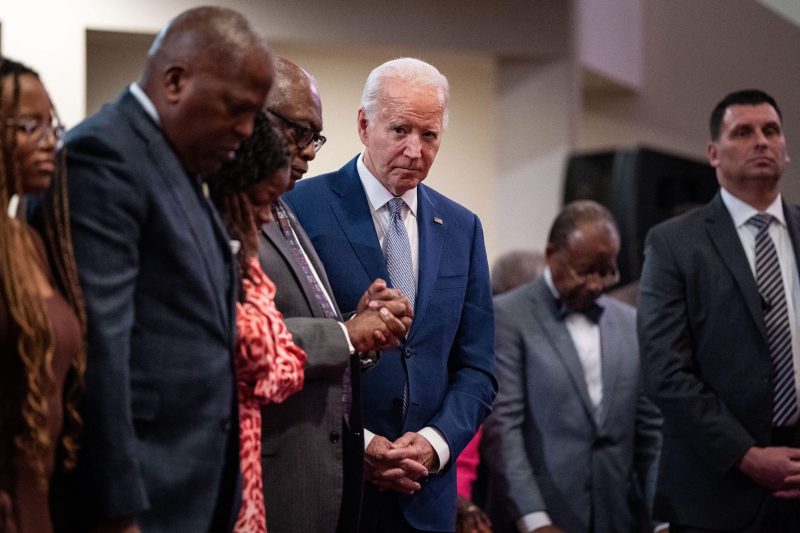In a recent Ipsos poll, it was found that a decreasing number of black voters are planning to vote in the upcoming 2024 elections, sparking concerns and debates regarding voter engagement and representation within the African American community.
The poll revealed that only 65% of black voters expressed their intention to vote in the 2024 elections, marking a significant decline from previous years. The reasons behind this drop in voter turnout among black voters are multifaceted and require a deeper understanding of the underlying issues.
One possible explanation for the decrease in black voter participation could be a growing sense of disillusionment and dissatisfaction with the political system. Many black Americans may feel that their voices are not being heard or that the candidates and political parties fail to address their specific needs and concerns effectively. This sentiment of being marginalized and overlooked within the political landscape can lead to voter apathy and disengagement.
Moreover, structural barriers such as voter suppression tactics, disenfranchisement efforts, and systemic racism in the electoral process can also contribute to lower voter turnout among black communities. The persistent challenges faced by black voters in accessing polling stations, obtaining necessary identification, and navigating complex voting policies can deter many from participating in the democratic process.
Another key factor influencing the decrease in black voter engagement is the lack of inspiring and representative leadership within the political sphere. Black voters may feel disenchanted with the limited choices available to them and the perceived absence of candidates who genuinely prioritize issues that impact their community.
To address and reverse this trend of declining black voter participation, it is crucial for policymakers, political leaders, and community advocates to implement targeted strategies that empower and mobilize black voters. This includes enhancing voter education initiatives, promoting voter registration drives, combating voter suppression practices, and elevating the voices of black leaders and activists.
Furthermore, cultivating a more inclusive and equitable political environment that values the perspectives and experiences of black voters is essential for fostering greater trust and enthusiasm in the electoral process. By amplifying black representation in positions of power, advancing policies that address racial disparities, and actively engaging with communities to address their specific needs, we can create a more just and participatory democracy for all.
In conclusion, the decline in black voter turnout for the 2024 elections serves as a critical reminder of the ongoing challenges and barriers that black voters face in exercising their fundamental right to vote. By acknowledging and addressing the root causes of this issue, we can work towards building a more inclusive, representative, and responsive electoral system that truly reflects the diversity and voices of all Americans.

